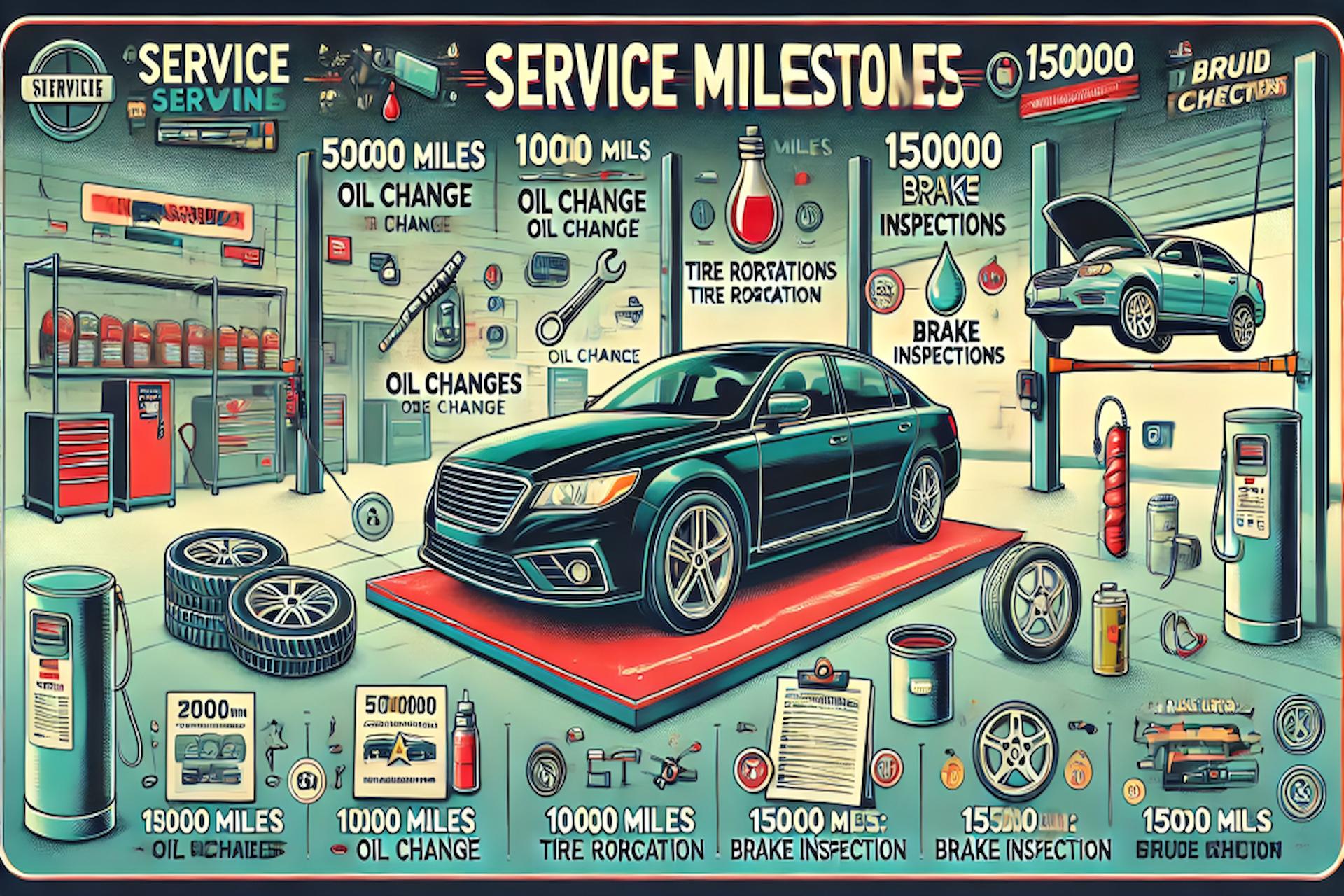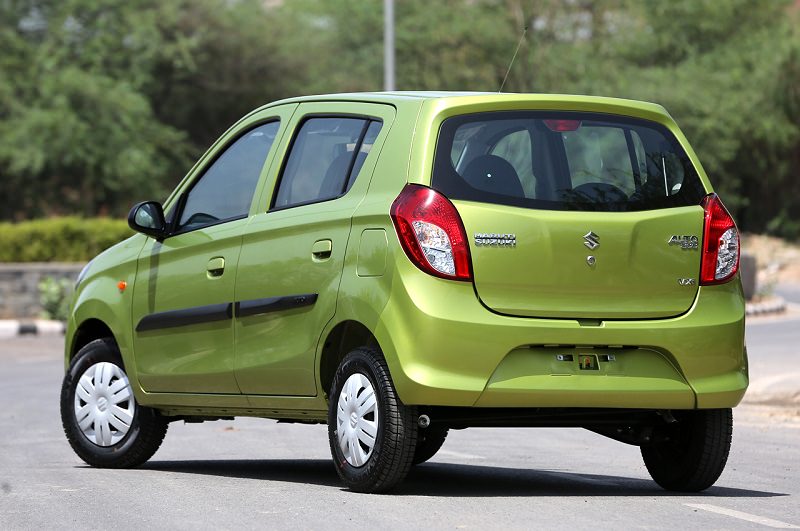Your car is one of the most important investments you’ll ever make, so keeping it in peak condition should be a top priority. Knowing when to service your car is key to avoiding unexpected breakdowns and expensive repairs. Whether you’re a new driver or have been behind the wheel for years, following a proper maintenance schedule can make all the difference.
In this comprehensive guide, we’ll explore the key milestones every car owner should know about. From oil changes to major component replacements, these checkpoints will keep your vehicle running efficiently and safely. Let’s break down the essential services and when they should happen to ensure your car is always road-ready.
Why Regular Car Servicing Is Essential
Prevent Breakdowns and Expensive Repairs
One of the biggest advantages of regular car servicing is preventing unexpected breakdowns. Over time, even small issues—like a clogged air filter or low oil levels—can turn into major problems if left unchecked. Regular maintenance helps mechanics identify and fix minor issues before they escalate into costly repairs.
Extend the Lifespan of Your Vehicle
Routine servicing isn’t just about avoiding breakdowns; it also extends the life of your car. Key components like the engine, brakes, and tyres all benefit from regular checks and adjustments, ensuring that your vehicle performs efficiently over the years.
1. Oil and Filter Change (Every 3,000 to 5,000 Miles)
Regular oil and filter changes are the backbone of a well-maintained vehicle. Clean oil keeps your engine lubricated and running smoothly, reducing wear and tear.
Why Oil Changes Matter:
- Protects the engine from overheating
- Reduces friction between moving parts
- Ensures optimal fuel efficiency
When to Change Your Oil:
- Every 3,000 to 5,000 miles for older models
- Every 5,000 to 7,500 miles for newer models with synthetic oil
2. Tire Rotation and Alignment (Every 6,000 to 8,000 Miles)
Tires wear down unevenly, which affects both safety and fuel efficiency. Regular tyre rotations and alignments ensure that your tyres last longer and provide optimal performance.
Benefits of Tire Rotation:
- Promotes even tyre wear
- Improves handling and stability
- Enhances fuel economy
Signs You Need an Alignment:
- Your car pulls to one side
- Uneven tyre wear
- Steering wheel vibration
3. Brake System Check (Every 20,000 to 30,000 Miles)
Your brakes are one of the most important safety features of your car. Regular checks ensure they are functioning properly and that your brake pads, rotors, and fluid are in good condition.
When to Check Your Brakes:
- Every 20,000 to 30,000 miles
- If you hear squeaking or grinding noises
- When your brake warning light comes on
What’s Included in a Brake Inspection:
- Brake pad wear check
- Rotor inspection for warping
- Brake fluid replacement
4. Air Filter Replacement (Every 15,000 to 30,000 Miles)
The air filter prevents dirt and debris from entering your engine, whether it runs on diesel or petrol, ensuring it operates efficiently. A dirty air filter can lead to poor engine performance and decreased fuel efficiency for both diesel and petrol engines.
Why You Need a Clean Air Filter:
- Improves fuel efficiency
- Protects the engine from contaminants
- Boosts overall performance
When to Replace Your Air Filter:
- Every 15,000 to 30,000 miles
- After driving in dusty or polluted conditions
- If you notice a drop in acceleration
5. Battery Check and Replacement (Every 3 to 5 Years)
A dead battery can leave you stranded at the most inconvenient times. Regular battery checks will ensure your car starts reliably, especially in extreme weather conditions.
Signs Your Battery Needs Replacement:
- Slow engine crank
- Dim headlights or dashboard lights
- The battery is more than three years old
Prevent Battery Failure:
- Test your battery annually, especially after three years
- Clean corrosion from terminals
- Check for leaks or swelling
6. Timing Belt Replacement (Every 60,000 to 100,000 Miles)
The timing belt is a critical component that synchronizes the rotation of the crankshaft and camshaft in your engine. If the timing belt fails, it can cause major engine damage, leading to costly repairs.
Importance of a Timing Belt:
- Prevents engine misfires
- Maintains precise engine timing
- Avoids catastrophic engine failure
When to Replace the Timing Belt:
- Around 60,000 to 100,000 miles
- If you hear a ticking noise from the engine
- As per your car’s manual
7. Comprehensive Service Check (Every 12 to 24 Months)
A full vehicle inspection is essential every year or two to keep all parts of your car in good working order. This includes everything from checking fluid levels to ensuring that major systems like the transmission and cooling systems are operating efficiently.
What a Comprehensive Service Includes:
- Engine and transmission checks
- Suspension and steering system inspection
- Brake, tyre, and exhaust system evaluation
Benefits of a Full Service:
- Prolongs the life of your car
- Identifies issues early on
- Keeps your vehicle performing at its best
Conclusion: The Importance of Following a Service Schedule
Sticking to a regular servicing schedule not only keeps your car running smoothly but also saves you from unexpected breakdowns and costly repairs. Whether you’re maintaining a new car or trying to get the most out of an older vehicle, the right service at the right time can make all the difference.
For car owners in Ruislip, it’s important to find a reliable garage-like car servicing Ruislip for your needs. A trusted mechanic can help you stay on top of all these key milestones, ensuring your car is safe, efficient, and ready for the road.
Remember, proactive maintenance is far more affordable than reactive repairs. By following these service milestones, you’ll not only extend the lifespan of your car but also enjoy smoother, worry-free driving for years to come.




